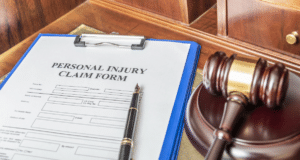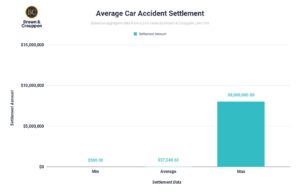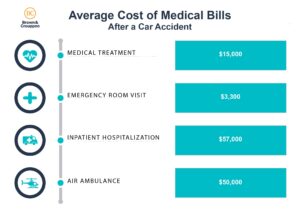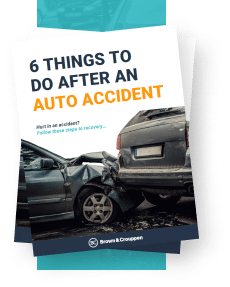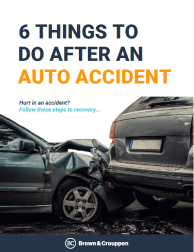

Use our legal checklist to learn what to do after an accident and understand key legal considerations for recovering financial compensation.
1. Ask Questions
Ask for how much the other driver’s property damage settled. Ask how badly hurt the other parties were injured. Ask how much insurance coverage you must cover the case. Ask what offers are made and whether the injured party ever agreed to settle the case within the policy limits. Your insurance company gets to decide what they are willing to offer, but you can ask them to settle the case for the policy limits.
Adjusters and defense attorneys love to tell you that the injured person and their attorney are being unreasonable. Still, they will not often tell you that they made a policy limit demand (meaning they agreed to settle the case for the policy limits). The insurance company refused to offer the limits, making it more likely that you will be dragged through litigation. If the injured party files a lawsuit and gets a verdict that is more than your policy limits, you must pay that! However, if you ask questions and ask the insurance company to settle the case within limits early on, you may be able to claim bad faith against your insurance company later.
2. Consider Getting Independent Counsel
The defense attorney is supposed to represent you, but the adjuster gets to make the financial (and often strategic) decisions on your case. This is a conflict of interest. Ask the defense attorney to sit down with you and ask that they forward all correspondence from the injured party and their attorney. If they refuse, then you know that they are working for your best interest. Though there is an initial cost to it, getting independent counsel may help save you from an expensive verdict in the long run.
3. Evaluate the Type of Insurance You Have
The best cure is prevention. Before you get into an accident, look at what kind of insurance you have, your policy limits, and ask what happens if you are in an accident. Likely you will be talking to an insurance agent at that point who will tell you that everything will be taken care of “no problem,” but be wary of insurance that seems too good (and too cheap) to be true. There is a reason they are cheap – they do not responsibly pay out their claims.
Damages Covered By Insurance If You Are At Fault
If you are at fault in a car accident, the damages covered by your insurance depend on the type of coverage in your policy. Here’s a breakdown of what is typically covered:
1. Liability Insurance
- Bodily Injury Liability: Covers medical expenses, lost wages, and other damages for the other party injured in the accident.
- Property Damage Liability: Pays for repairs to the other party’s vehicle or other property you damaged.
2. Collision Coverage - (Optional)
- Pays for repairs to your vehicle regardless of who is at fault.
- Deductibles typically apply, meaning you pay a portion of the repair costs.
3. Comprehensive Coverage - (Optional)
- Covers damage to your vehicle caused by events unrelated to the accident, such as theft, vandalism, or natural disasters.
- Often bundled with collision coverage.
4. MedPay or Personal Injury Protection (PIP) -(Optional or Required in Some States)
- Covers your medical expenses and sometimes lost wages, regardless of who caused the accident.
- PIP coverage may also extend to passengers in your car.
5. Uninsured/Underinsured Motorist Coverage - (Optional or Required in Some States)
- Typically applies if the other driver is at fault and lacks sufficient insurance, but some policies may provide coverage for hit-and-run incidents where fault is unclear.
Additional Considerations
- If you do not have collision or comprehensive coverage, you will need to pay out of pocket for your vehicle’s repairs if you are at fault.
- Each state has different minimum insurance requirements, and some states operate under “no-fault” laws, which can affect how claims are handled.
- Always check your specific policy details to understand what is covered and any limits or exclusions.
What Happens If You're Partially At Fault For The Accident
- Insurance Claims: Your insurance company may cover part of the damages, but your payout might be reduced based on your percentage of fault. If you have liability coverage, it may also cover the other driver’s damages, depending on your level of responsibility.
- Liability and Compensation: If the other driver is partially at fault, you may also be able to recover some of your damages. However, the amount you can recover is typically reduced by your share of the responsibility.
- Increased Insurance Rates: Being partially at fault can lead to higher insurance premiums, as insurance companies may view you as a higher risk.
- Legal Consequences: If the accident leads to a lawsuit, the court may apportion fault between you and the other parties involved. The compensation you receive or owe will be adjusted based on the percentage of fault assigned to each party.
- State-Specific Laws: Some states follow a “modified comparative negligence” rule, where you can only recover damages if you are less than 50% (or sometimes 51%) at fault. In “pure comparative negligence” states, you can recover damages regardless of your level of fault, but the amount is reduced by your percentage of responsibility.

